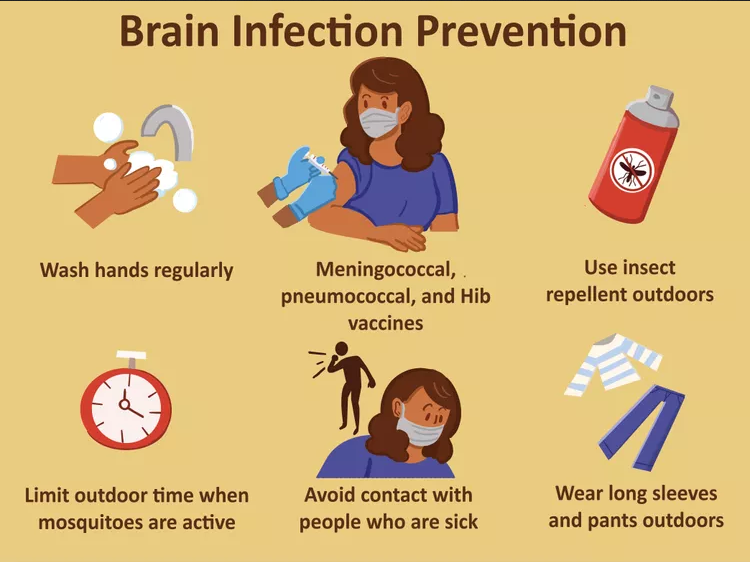
Brain infections can be serious and potentially life-threatening conditions. If you suspect a brain infection, it is crucial to seek immediate medical attention. Here are ten warning signs that may indicate a brain infection:
Severe headaches: Persistent and intense headaches that are not relieved by over-the-counter pain medications may be a sign of a brain infection.
Fever: A high body temperature, often accompanied by chills or sweating, can be an indication of an infection, including a brain infection.
Neck stiffness: Difficulty moving the neck or a stiff neck, especially when accompanied by other symptoms, may suggest meningitis, an infection of the membranes surrounding the brain and spinal cord.
Sensory changes: Changes in vision, hearing, taste, or smell that occur suddenly or progressively may be associated with a brain infection.
Seizures: Uncontrolled electrical activity in the brain can cause seizures. If you experience a seizure without a history of epilepsy, it could be a sign of a brain infection.
Altered mental status: Confusion, disorientation, memory problems, personality changes, or unusual behavior can indicate an infection affecting the brain.
Weakness or paralysis: Sudden weakness or paralysis in one or more limbs, typically on one side of the body, may occur as a result of a brain infection.
Nausea and vomiting: Persistent or severe nausea and vomiting, especially when accompanied by other neurological symptoms, should not be ignored.
Sensitivity to light: Increased sensitivity to light, known as photophobia, can be a symptom of meningitis or other brain infections.
Altered consciousness: Loss of consciousness, fainting, or difficulty staying awake can be a worrisome sign of a brain infection.
It’s important to remember that these signs can be caused by various conditions, and experiencing one or more of these symptoms does not necessarily mean you have a brain infection. However, if you have concerns or suspect a brain infection, it is vital to consult a healthcare professional for an accurate diagnosis and appropriate treatment.